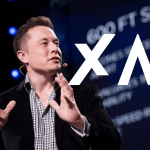South Africa is considering a major regulatory shift that could allow Elon Musk’s Starlink to operate in the country without meeting the current Black Economic Empowerment (BEE) ownership requirements. The move, if finalized, would mark a significant departure from established telecom regulations designed to address the economic imbalances left by apartheid.
Presently, South Africa’s laws require foreign telecommunications companies to ensure at least 30% Black ownership in local operations. Starlink, operated by Musk’s aerospace firm SpaceX, has so far been unable to obtain a licence due to these regulations. In response, the government is proposing an alternative arrangement through an “equity equivalent” programme. This scheme would allow companies to meet empowerment objectives by investing in initiatives like skills development, enterprise support, or community projects, rather than surrendering ownership shares.
The proposal is seen as a potential signal to global investors that South Africa is open to regulatory flexibility, particularly in the technology and telecom sectors. It also comes at a time when Pretoria is looking to improve strained diplomatic relations with Washington.
Musk, a South African-born entrepreneur, has long criticized BEE laws as discriminatory. His stance has gained support from those who argue that such requirements hinder technological progress and deny local consumers access to global innovations like satellite internet.
The policy review follows a diplomatic visit by South African President Cyril Ramaphosa to Washington, where he met with former U.S. President Donald Trump. The meeting was marked by tensions, especially after Trump raised debunked claims of a “white genocide” in South Africa, highlighting the political sensitivities surrounding foreign relations and internal policies.
While the government insists that the BEE framework remains vital to correcting historical injustices, the possible accommodation for Starlink could set a new precedent for how South Africa balances transformation goals with global economic integration.










